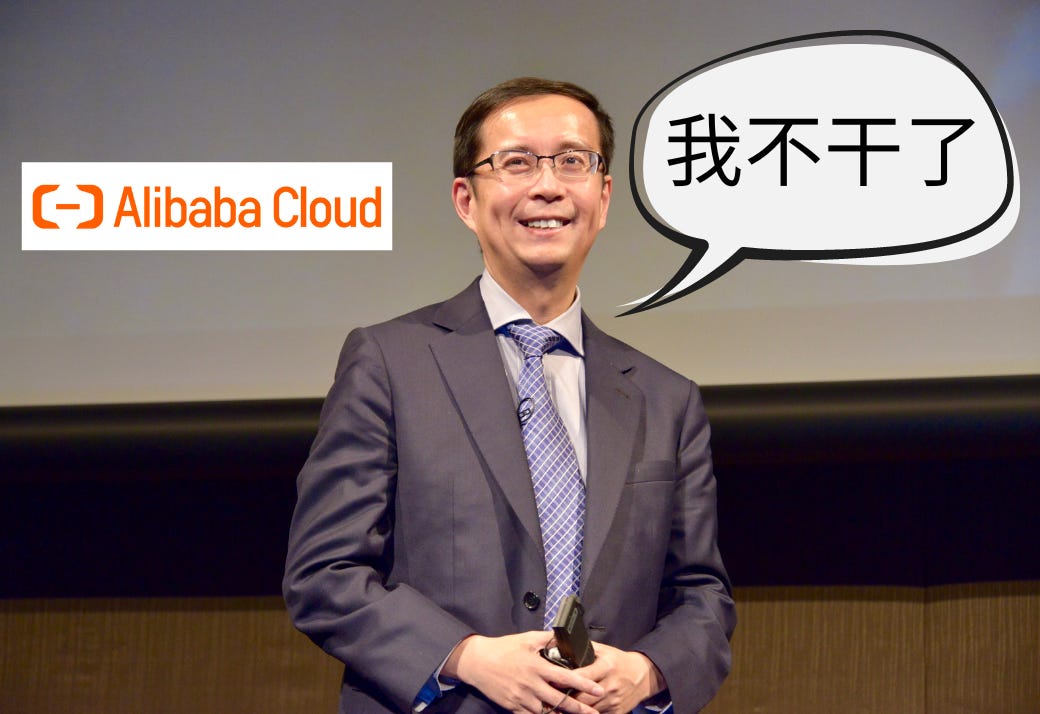From Alibaba CEO to Out the Door: Decoding Daniel Zhang's Sudden Departure
In a shock announcement over the weekend, Alibaba announced that Daniel Zhang will leave his role as the CEO of the Cloud Intelligence Group.
This move was quite unexpected, given that just six months ago, Alibaba underwent a significant restructuring, dividing into six independent divisions, with Zhang taking the helm of the cloud business.
In June, it was revealed that Eddie Wu would assume the position of Group CEO, while Joe Tsai would become Chairman, effective September 10, 2023. However, the plan was for Zhang to continue as the head of Alicloud, making the sudden appointment of Eddie Wu as the acting CEO of the cloud unit a clear indication that this change was not part of the original strategy. Typically, a new permanent CEO would have been announced rather than an interim one.
It is reasonable to assume that Zhang chose to depart from Alibaba, rather than this being a decision by the company itself. We guessed that Zhang's leadership is no longer as valued as before in the organization and we previously discussed about Jack Ma's involvement behind Alibaba might have something to do with Zhang's relegation (https://growthdragons.substack.com/p/jack-ma-is-changing-alibaba-behind.) It appears that Zhang felt it was time to move on.
This departure has also taken Alibaba by surprise, requiring the company to now search for a suitable replacement. The separate listing of the cloud unit is still underway and will be managed by the new team. However, the transition to a new leader and his acclimatization to the business could potentially delay the listing by several months or even more than a year.
It's worth noting that Zhang's departure appears to be amicable, as he has been granted the title of "emeritus" within Alibaba, a distinction even Jack Ma did not even receive. Additionally, Zhang is set to establish a technology fund, with Alibaba investing US$1 billion in it.
One interpretation of this situation is that Alibaba still values Zhang's expertise and experience in certain areas, aiming to maintain continuity. Zhang's emeritus status likely means he won't receive a salary from Alibaba, but he will derive compensation through fees charged on Alibaba's $1 billion investment in his fund. This arrangement seems mutually beneficial if this is indeed the case.
In terms of the impact on Alibaba, there will undoubtedly be short-term consequences, primarily due to the unplanned nature of Zhang's departure. It would have been more opportune for Zhang to oversee Alicloud's initial public offering (IPO) before passing the baton to a successor. The most evident effect is the delay in Alicloud's IPO.
Ultimately, it seems that Zhang's era at Alibaba had come to a close when the management reshuffle was initially announced in June. The company's inner circle evidently believed that a leadership change was necessary, and it was only a matter of time before it occurred. Alibaba could potentially benefit from Eddie Wu's leadership, as it marks the end of a potentially awkward dynamic where he would have been managing his former boss. Hopefully, this change will enable Alibaba to move forward with a fresh start.




